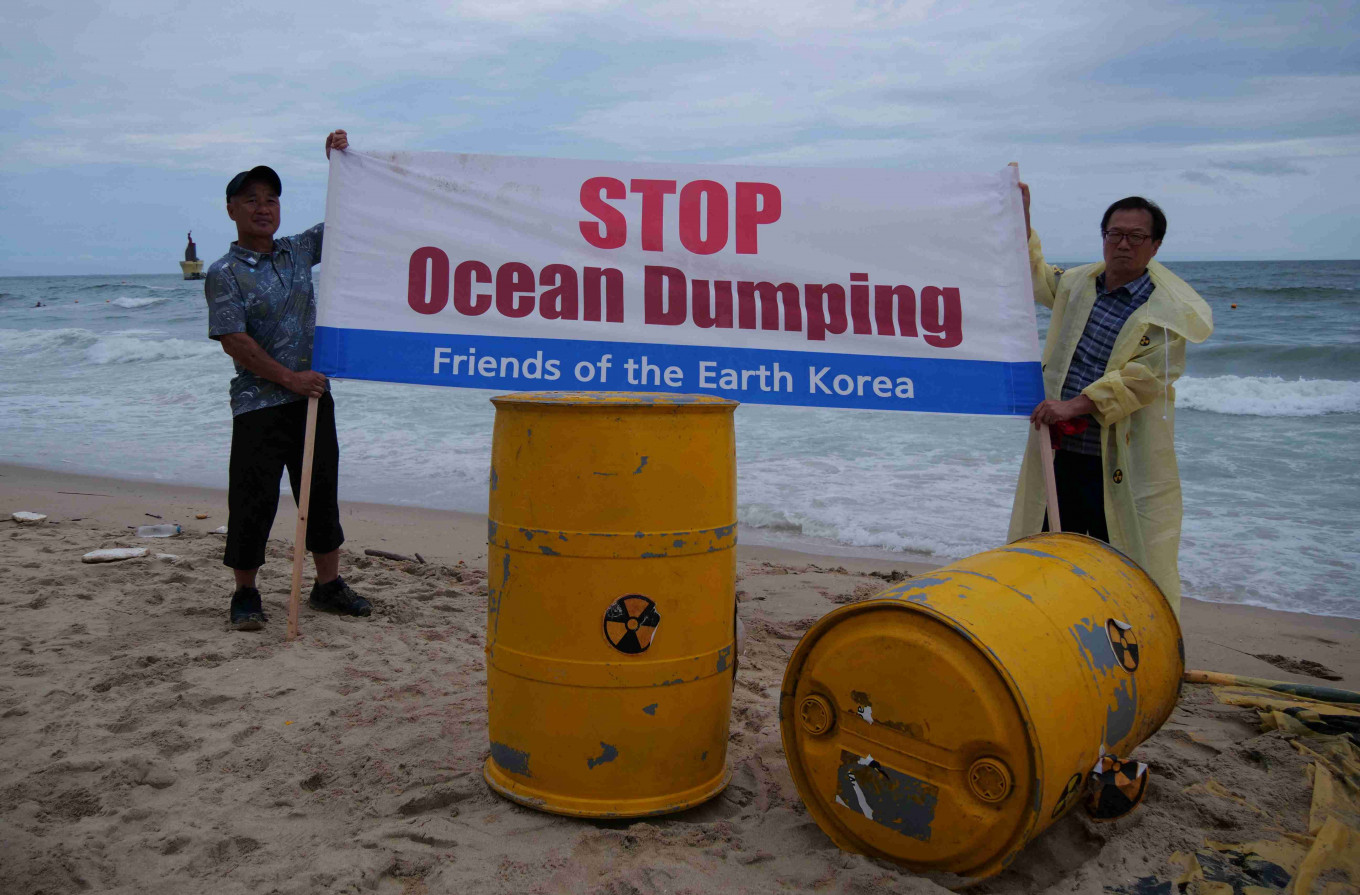Popular Reads
Top Results
Can't find what you're looking for?
View all search resultsPopular Reads
Top Results
Can't find what you're looking for?
View all search resultsHeightened scrutiny of Japanese seafood exports after Fukushima water release
Japan’s seafood exports are facing increased scrutiny and, in some cases, outright bans as importing countries reckon with the release of treated wastewater from the Fukushima nuclear incident, although analysts expect the economic impact on Japan to be minimal.
Change text size
Gift Premium Articles
to Anyone
J
apan’s seafood exports are facing increased scrutiny and, in some cases, outright bans as importing countries reckon with the release of treated wastewater from the Fukushima nuclear incident, although analysts expect the economic impact on Japan to be minimal.
Japan began the discharge of more than 1 million cubic tons of treated radioactive water from the plant operated by Tokyo Electric Power Company on Thursday, prompting China to announce an immediate blanket ban on all aquatic products from Japan.
China has said the ban was prompted by concerns about the "risk of radioactive contamination" from the release of the wastewater into the sea.
More than 700 Japanese food exporters have been affected by China's ban, according to a report by market research firm Teikoku Databank released on Friday.
According to the Tokyo-based Teikoku Databank, 727 Japanese companies export food products to China, accounting for about 8 percent of all Japanese firms shipping goods to China.
The report also said 316 Japanese firms exported foods to Hong Kong, which announced its own ban on Japanese seafood imports from 10 regions after the Fukushima water release.
South Korea said on Friday it would drastically expand radiation testing of farmed seafood as demand grew from fishermen and the public to ensure safety.
By the end of this year, more than 4,000 additional tests will be conducted on farmed seafood products at private institutions before they are shipped, Vice Oceans Minister Park Sung-hoon said at a news briefing.
The minister said no radiation had been detected since the tests began in late July.
The South Korean government would also receive related real-time data from Japan after the radioactive water release began and keep an eye on concentration levels of 69 kinds of radioactive substances, he said.
South Korean Prime Minister Han Duck-soo said the government was ready to file an international lawsuit if Japan's release of the treated water went beyond the standards.
"The Ministry of Foreign Affairs will always remain ready to lodge a suit internationally if the release is conducted in a way that is inconsistent with the standards," the prime minister said.
Japan exported about $600 million worth of aquatic products to China in 2022, making it the biggest market for Japanese exports, with Hong Kong second. Sales to China and Hong Kong accounted for 42 percent of all Japanese aquatic exports in 2022, according to government data.
The Asian financial hub of Hong Kong and the gambling center of Macau, both Chinese-ruled, are banning imports from 10 Japanese regions.
Japan says the water release is safe, noting that the International Atomic Energy Agency (IAEA) has also concluded that the impact on people and the environment will be "negligible".
With Japan's total exports, dominated by cars and machinery, standing at close to 100 trillion yen, the impact from China's move is negligible, analysts say.
The neighbors have complex ties rooted in history and the question of a regional balance of power.
Last week, Beijing criticized an agreement among the United States, South Korea and Japan to strengthen military and economic ties.
This week's ban "seems part of the features of China-Japan rivalry, which is of course entangled with China-US competition, given Tokyo's close alliance relationship with Washington", said Chong Ja Ian of the National University of Singapore, who analyzes how major power competition affects the domestic economies of third countries.
Seafood exports to China and Hong Kong accounted for just 0.17 percent of Japan's total exports last year, said Takahide Kiuchi, an economist with the Nomura Research Institute.
"Even if the import suspension continues for one year, the effect of depressing Japan's gross domestic product is only 0.03 percent."
Since the vast majority of Japan's fish catch is consumed at home, top seafood producers Maruha Nichiro and Nissui expect limited impact from the ban, their spokespeople told Reuters.
The news hardly affected their shares, with Maruha Nichiro closing up 0.12 percent and Nissui adding 0.75 percent, moderately underperforming a rise of 0.87 percent in the benchmark Nikkei index.
China's customs data shows it is sourcing all its bluefin tuna, one of the most expensive fish globally, from Japan, while scallops make up the largest import by volume.
Yet the 156,000 metric tons of seafood Japan supplied to China last year contribute less than 4 percent of the latter's seafood imports of $18.8 billion, the data shows, with Ecuador, India and Russia being the largest suppliers.
"It's not going to make many ripples in the seafood sector," said Gorjan Nikolik, senior global seafood specialist at Dutch bank Rabobank, referring to the ban. "Japan is not a relevant exporter."
Fukushima plant operator Tokyo Electric Power Co (Tepco) has vowed to compensate domestic businesses for damage from a fall in exports because of the ban.










